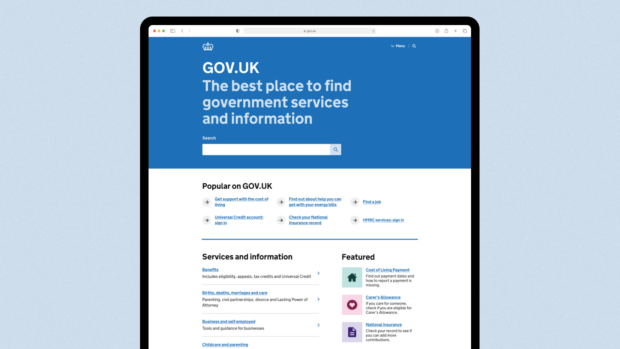HMRC has said that it will develop its identity assurance solution to replace Government Gateway when it ends in March 2018 – rather than using the government’s flagship GOV.UK Verify.
HMRC will not be using GOV.UK Verify when Government Gateway expires in March 2018 – Photo credit: HMRC
Government Gateway allows individuals, businesses and agents to use government services online by proving and authenticating their identity, and currently has more than 50 million active accounts.
It is due to expire in March 2018, and in a blogpost published yesterday, HMRC programme director Mike Howes-Roberts confirmed that the department was planning to develop its own, new identity solution to replace it – rather than using the Government Digital Service’s GOV.UK Verify.
“There is much the current Government Gateway service does well and we’ll be looking to take forward into a new solution,” he wrote. “But we also know we can provide a more agile, flexible and secure set of services, and at a lower cost.”
The new solution will support 53 of the existing 123 services Government Gateway hosts, and Howes-Roberts said that the details were being worked on at the moment.
Related content
IT spending controls are set to change, says new GDS leader
GDS Verify director to leave in latest high-profile exit
The three pillars of a holistic approach to digital transformation
The move will likely be met with disappointment from commentators who would like to see HMRC building on Verify, which the government itself put a renewed emphasis on just last week, announcing in the government transformation strategy that it was aiming for there to be 25 million users registered on Verify by 2020.
GDS director general Kevin Cunnington has previously explained away the issue by saying that Verify works at a different level than HMRC needs.
This, he said, is because Verify needs to verify someone’s identity at a level that ensures the right people are being paid by government (for instance benefits payments), rather than verifying people who want to pay money in to government.
Cunnington has also pointed out that Verify is constrained to citizens and not agents, which HMRC requires – something that was also picked up on by Howes-Roberts.
“Other departments will use GOV.UK Verify for all individual citizen services,” Howes-Roberts said, emphasising that the Cabinet Office required all citizen-facing services must use Verify for identity assurance.
However, he added that HMRC was “exploring options around other government departments also using this replacement service”, which would be “restricted to business and agent-facing services only”.
Howes-Roberts added that he wanted to work closely with other departments, with a “genuinely open door and an honest and candid dialogue”, which will include work with a cross-government steering group.
Nonetheless, the move was criticised on social media, with users expressing frustration that HMRC was planning to develop a new solution that would mean some users would have to sign up to two different government verification tools.
“Siloing HMRC from the Cabinet Office on the face of it appears to be an expensive additional feature for third parties to implement,” wrote software developer Ed Blackburn. “All of which without adequate explanation looks to be unnecessary.”
Others said that it was disappointing that Verify was not meeting the needs of HMRC, one of the biggest potential users of identity verification services.
To be clear, I’m as cross at Verify for not meeting the needs of HMRC as I am with HMRC for building something new.
— Sym Roe (@symroe) February 14, 2017



